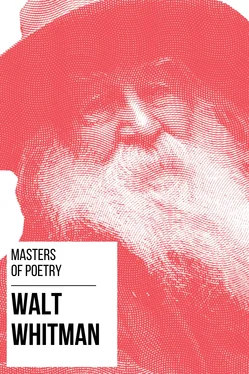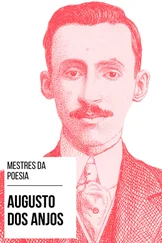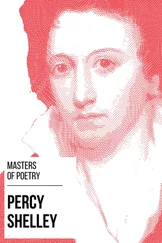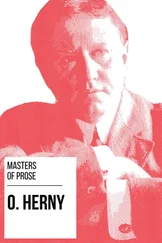Do you count manhood, and the sweet of manhood, nothing?
Think of womanhood and you to be a woman;
The Creation is womanhood;
Have I not said that womanhood involves all?
Have I not told how the universe has nothing better than the best womanhood?"
Egotism is usually intolerant, but Whitman was one of the most tolerant of men.
A craving for sympathy and personal affection he certainly had; to be valued as a human being was more to him than to be valued as a poet. His strongest attachments were probably for persons who had no opinion, good or bad, of his poetry at all.
Under close scrutiny his egotism turns out to be a kind of altru-egotism, which is vicarious and all-inclusive of his fellows. It is one phase of his democracy, and is vital and radical in his pages. It is a high, imperturbable pride in his manhood and in the humanity which he shares with all. It is the exultant and sometimes almost arrogant expression of the feeling which underlies and is shaping the whole modern world—the feeling and conviction that the individual man is above all forms, laws, institutions, conventions, bibles, religions—that the divinity of kings, and the sacredness of priests of the old order, pertains to the humblest person.
It was a passion that united him to his fellows rather than separated him from them. His pride was not that of a man who sets himself up above others, or who claims some special advantage or privilege, but that godlike quality that would make others share its great good-fortune. Hence we are not at all shocked when the poet, in the fervor of his love for mankind, determinedly imputes to himself all the sins and vices and follies of his fellow-men. We rather glory in it. This self-abasement is the seal of the authenticity of his egotism. Without those things there might be some ground for the complaint of a Boston critic of Whitman that his work was not noble, because it celebrated pride, and did not inculcate the virtues of humility and self-denial. The great lesson of the "Leaves," flowing curiously out of its pride and egotism, is the lesson of charity, of self-surrender, and the free bestowal of yourself upon all hands.
The law of life of great art is the law of life in ethics, and was long ago announced.
He that would lose his life shall find it; he who gives himself the most freely shall the most freely receive. Whitman made himself the brother and equal of all, not in word, but in very deed; he was in himself a compend of the people for which he spoke, and this breadth of sympathy and free giving of himself has resulted in an unexpected accession of power.
HIS RELATION TO ART AND LITERATURE
I
WHITMAN protests against his "Leaves" being judged merely as literature; but at the same time, if they are not good literature, that of course ends the matter. Still while the questions of art, of form, of taste, are paramount in most other poets,—certainly in all third and fourth rate poets, in Whitman they are swallowed up in other questions and values.
In numerous passages, by various figures and allegories, Whitman indicates that he would not have his book classed with the order of mere literary productions.
"Shut not your doors to me, proud libraries," he says in one of the "Inscriptions,"—
"For that which was lacking in all your well-fill'd shelves, yet needed most, I bring.
Forth from the war emerging, a book I have made,
The words of my book nothing, the drift of it everything,
A book separate, not link'd with the rest nor felt by the intellect,
But you, ye untold latencies will thrill to every page."
Not linked with the studied and scholarly productions, not open to the mere bookish mind, but more akin to the primitive utterances and oracles of historic humanity. A literary age like ours lays great stress upon the savor of books, art, culture, and has little taste for the savor of real things, the real man, which we get in Whitman.
"It is the true breath of humanity," says Renan, "and not literary merit, that constitutes the beautiful." An Homeric poem written to-day, he goes on to say, would not be beautiful, because it would not be true; it would not contain this breath of a living humanity. "It is not Homer who is beautiful, it is the Homeric life." The literary spirit begat Tennyson, begat Browning, begat the New England poets, but it did not in the same sense beget Whitman, any more than it begat Homer or Job or Isaiah. The artist may delight in him and find his own ideals there; the critic may study him and find the poet master of all his weapons; the disciple of culture will find, as Professor Triggs has well said, that "there is no body of writings in literature which demands a wider conversancy with the best that has been thought or said in the world,"—yet the poet escapes from all hands that would finally hold him and monopolize him. Whitman is an immense solvent,—forms, theories, rules, criticisms, disappear in his fluid, teeming pages. Much can be deduced from him, because much went to the making up of his point of view. He makes no criticism, yet a far-reaching criticism is implied in the very start of his poems. No modern poet presupposes so much, or requires so much preliminary study and reflection. He brings a multitude of questions and problems, and, what is singular, he brings them in himself; they are implied in his temper, and in his attitude toward life and reality.
Whitman says he has read his "Leaves" to himself in the open air, that he has tried himself by the elemental laws; and tells us in many ways, direct and indirect, that the standards he would be tried by are not those of art or books, but of absolute nature. He has been laughed at for calling himself a "Kosmos," but evidently he uses the term to indicate this elemental, dynamic character of his work,—its escape from indoor, artificial standards, its aspiration after the "amplitude of the earth, and the coarseness and sexuality of the earth, and the great charity of the earth, and the equilibrium also."
Unless the poetic perception is fundamental in us, and can grasp the poetry of things, actions, characters, multitudes, heroisms, we shall read Whitman with very poor results. Unless America, the contemporary age, life, nature, are poetical to us, Whitman will not be. He has aimed at the larger poetry of forces, masses, persons, enthusiasms, rather than at the poetry of the specially rare and fine. He kindles in me the delight I have in space, freedom, power, the elements, the cosmic, democracy, and the great personal qualities of self-reliance, courage, candor, charity.
Always in the literary poets are we impressed with the art of the poet as something distinct from the poet himself, and more or less put on. The poet gets himself up for the occasion; he assumes the pose and the language of the poet, as the priest assumes the pose and the language of devotion. In Whitman the artist and the man are one. He never gets himself up for the occasion. Our pleasure in him is rarely or never our pleasure in the well-dressed, the well-drilled, the cultivated, the refined, the orderly, but it is more akin to our pleasure in real things, in human qualities and powers, in freedom, health, development. Yet I never open his book without being struck afresh with its pictural quality, its grasp of the concrete, its vivid realism, its intimate sense of things, persons, truths, qualities, such as only the greatest artists can give us, and such as we can never get in mere prose. It is as direct as a challenge, as personal as a handshake, and yet withal how mystical, how elusive, how incommensurable! To deny that Whitman belongs to the fraternity of great artists, the shapers and moulders of the ideal,—those who breathe the breath of life into the clay or stone of common facts and objects, who make all things plastic and the vehicles of great and human emotions,—is to read him very inadequately, to say the least. To get at Walt Whitman you must see through just as much as you do in dealing with nature; you are to bring the same interpretive imagination. You are not to be balked by what appears to be the coarse and the familiar, or his rank contemporaneity; after a time you will surely see the lambent spiritual flames that play about it all.
Читать дальше












